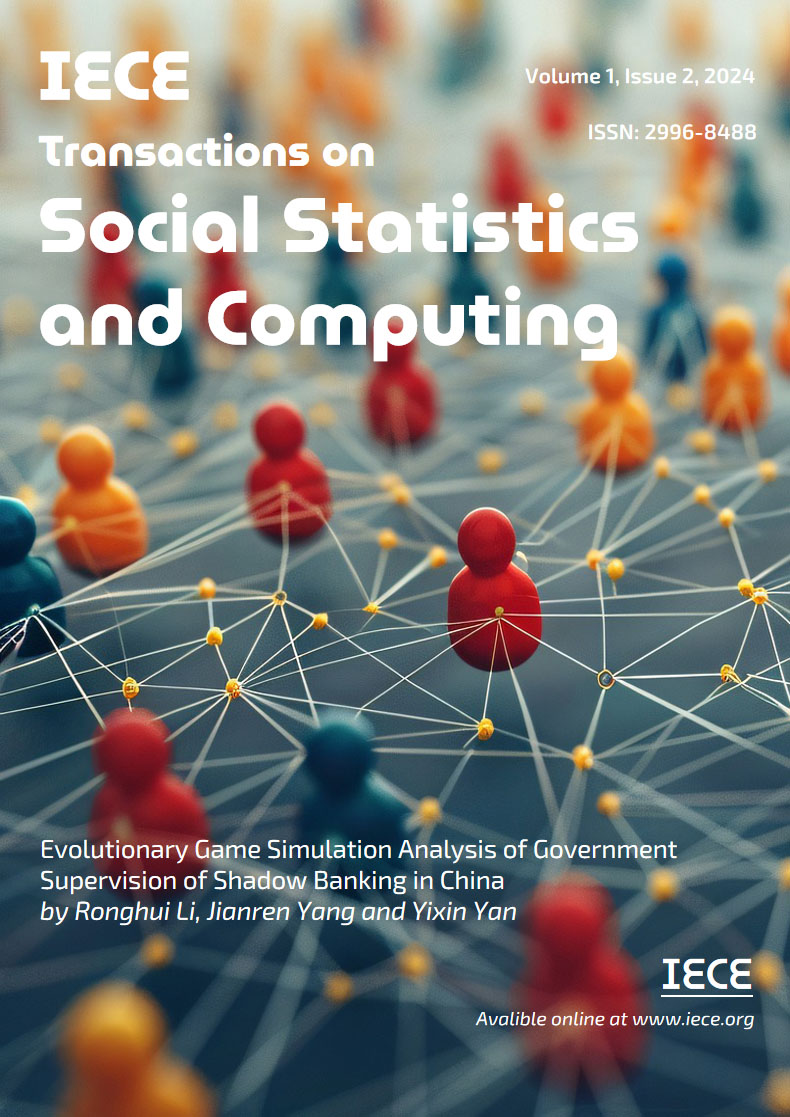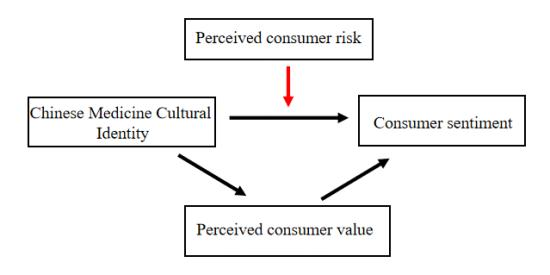Abstract
With the innovative development of Chinese medicine and the implementation of the Great Health Strategy in China, the food and medicine industry has ushered in new development opportunities. However, the development of Chinese medicine also faces the challenges of irrational resource allocation and governance modernisation. This study aims to explore the influence of Chinese medicine cultural identity on the consumption intention of medicinal diets, and the role of perceived consumption value and perceived consumption risk in this process. This paper constructs a research model based on cultural identity theory, perceived risk theory and consumption value theory, and analyses the survey data by designing, distributing and collecting questionnaires from residents of Guangzhou City, and adopting methods such as reliability and validity analysis, covariance analysis, validation factor analysis and model validation.It was found that TCM cultural identity had a significant positive effect on medicinal dietary consumption intention, and perceived consumption value played a partial mediating role between TCM cultural identity and medicinal dietary consumption intention. However, perceived consumption risk did not have a significant moderating effect on the relationship between TCM cultural identity and willingness to consume medicinal meals. This leads to the construction of the development of the medicinal cuisine industry. This study provides theoretical guidance for the healthy development of the government, hospitals, and the TCM industry, and correctly guides the scientific consumption of consumers, fully reflecting the economic value and social significance of the study.
Keywords
Cultural identity of traditional Chinese medicine
Medicinal dietary consumption willingness
Perceived consumption value
Perceived consumption risk
Consumer behaviour
Funding
This work was supported without any funding.
Cite This Article
APA Style
Liang, Z., Lu, Y., & He, X. (2024). The Consumption Willingness of Medicinal Food in the Context of Traditional Chinese Medicine Cultural Identity: Taking Guangzhou City as an Example. IECE Transactions on Social Statistics and Computing, 1(2), 41–51. https://doi.org/10.62762/TSSC.2024.970448
Publisher's Note
IECE stays neutral with regard to jurisdictional claims in published maps and institutional affiliations.
Rights and permissions
Institute of Emerging and Computer Engineers (IECE) or its licensor (e.g. a society or other partner) holds exclusive rights to this article under a publishing agreement with the author(s) or other rightsholder(s); author self-archiving of the accepted manuscript version of this article is solely governed by the terms of such publishing agreement and applicable law.


 Submit Manuscript
Edit a Special Issue
Submit Manuscript
Edit a Special Issue

